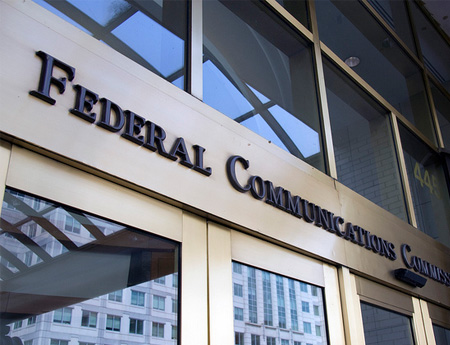NBC/Telemundo Pays $495,000 to Settle FCC Kids TV Investigation

The smarter way to stay on top of broadcasting and cable industry. Sign up below
You are now subscribed
Your newsletter sign-up was successful
NBC/Telemundo has agreed to pay $495,000 to settle an FCC investigation into whether it fulfilled its children's TV programming obligation--in several instances, it didn't. (The amount of the settlement was initially incorrectly reported as in the millions of dollars).
At the same time the FCC said it was was approving a couple dozen of the the company's pending TV station license renewal, including big market O&Os WNBC-TV New York, KNBC-TV Los Angeles, WMAQ-TV Chicago and WRC-TV Washington, and said that the kids TV violations could not be used to challenge NBC/Telemundo's qualifications to be a licensee when the other stations come up for renewal.
According to the FCC, in the consent decree, NBC/Telemundo conceded in some instances it had failed to air sufficient amounts (at least three hours per week) of core educational and informational programming, as required by law and FCC rules, and in "a few" cases (four stations) failed to file its kids TV reports, also as required. The FCC also subsequently uncovered other omissions and errors in the reports.
The FCC said that the failure to air three hours was due to preemptions for sports programming. The FCC allows for that preemption, but the shows must be rescheduled, which did not happen in some cases. The violations occurred during the 2012-2015 and 2004-2007 license renewal cycles.
The FCC said NBC/Telemundo had since provided the correct information for the errant or incomplete programming reports.
Related: Dems Tell FCC to Leave Kids Rules Alone
The FCC concluded that while NBC/Telemundo had "failed to satisfy the requirements of our processing guidelines," which included airing those three hours per week of E/I programming, it still concluded it was in the public interest to renew its station licenses, "provided that there are no other impediments to granting the applications and conditioned upon NBC/Telemundo’s timely satisfaction of its obligations to pay to the U.S. Treasury..."
The smarter way to stay on top of broadcasting and cable industry. Sign up below
The Consent Decree resolves issues with 23 TV stations, according to someone familiar with the decree. The sports preemptions included for the Summer and Winter Olympics and some of the program report issues included typographical and math errors.The FCC also did not find any violation of the the separate and since-expired children’s E/I programming condition on the Comcast/NBCUniversal merger, said the source, which is important since the Justice Department has signaled it is keeping an eye out Comcast/NBC's conduct post-merger.
NBC/Telemundo has agreed "to implement and maintain a Compliance Plan designed to ensure its future compliance with the CTA [Children's Television Act] and the Children’s Television Programming Rules."
In addition to admitting it failed to air the requisite programming or file the requisite accurate reports, NBC/Telemundo waives the right to challenge the facts behind the decision, though it can challenge how the FCC chooses to interpret the consent decree and its terms.
For its part, the FCC promises not to use that admission to "take action in response to any petition to deny, complaint, or objection against NBC/Telemundo with respect to its basic qualifications, including its character qualifications, to be a Commission licensee or to hold a Commission license or authorization."
The FCC also said that if it changes its Kids TV rules--such changes are currently in the works --"NBC/Telemundo’s obligations under this Compliance Plan are hereby amended consistent with the revised Rules/obligations." That means if the FCC no longer requires three hours per week of E/I programming on a TV station's primary channel, for example, NBC/Telemundo stations won't have to, either.
“The licensees of the NBC and Telemundo owned television stations and the FCC have entered into a Consent Decree to resolve children’s programming issues that occurred at some of the stations, mostly many years ago," said NBC in a statement. "NBC/Telemundo worked with the FCC to resolve all outstanding matters in a cooperative and constructive manner. The NBC and Telemundo owned stations have a long and rich legacy of delivering high-quality programming to viewers of all ages, including our youngest audience members. The stations look forward to continuing to provide the educational and informational programming that our young viewers deserve and to fulfilling our public interest responsibilities in all respects.”
FCC commissioner Michael O'Rielly, who is championing the kids TV changes currently before the FCC, approved of the deal, but said it suggested such changes were necessary.
"I approve this consent decree between the Commission and NBC Telemundo, which resolves concerns over compliance with our children’s television programming obligations and reporting requirements, allowing the Commission to approve pending broadcast station license renewals," O'Rielly said. "All entities should be aware that the Commission expects full compliance by those subject to our rules, and such an experienced licensee should have a firm grasp of its FCC obligations or seek appropriate Commission waivers, as necessary.
"At the same time, the compliance issues raised by the consent decree amplify problems with and the need for important revisions to Commission’s underlying children’s television programming rules. The issues generating this item – preemption for live, high-demand programming and overly burdensome reporting requirements–are exactly those that justify the Commission’s review of its current children’s television programming rules. In the end, I am confident that we can revise our rules to provide necessary and appropriate flexibility for local broadcasters while preserving and/or improving the experience of those watching children’s programming."
Contributing editor John Eggerton has been an editor and/or writer on media regulation, legislation and policy for over four decades, including covering the FCC, FTC, Congress, the major media trade associations, and the federal courts. In addition to Multichannel News and Broadcasting + Cable, his work has appeared in Radio World, TV Technology, TV Fax, This Week in Consumer Electronics, Variety and the Encyclopedia Britannica.

